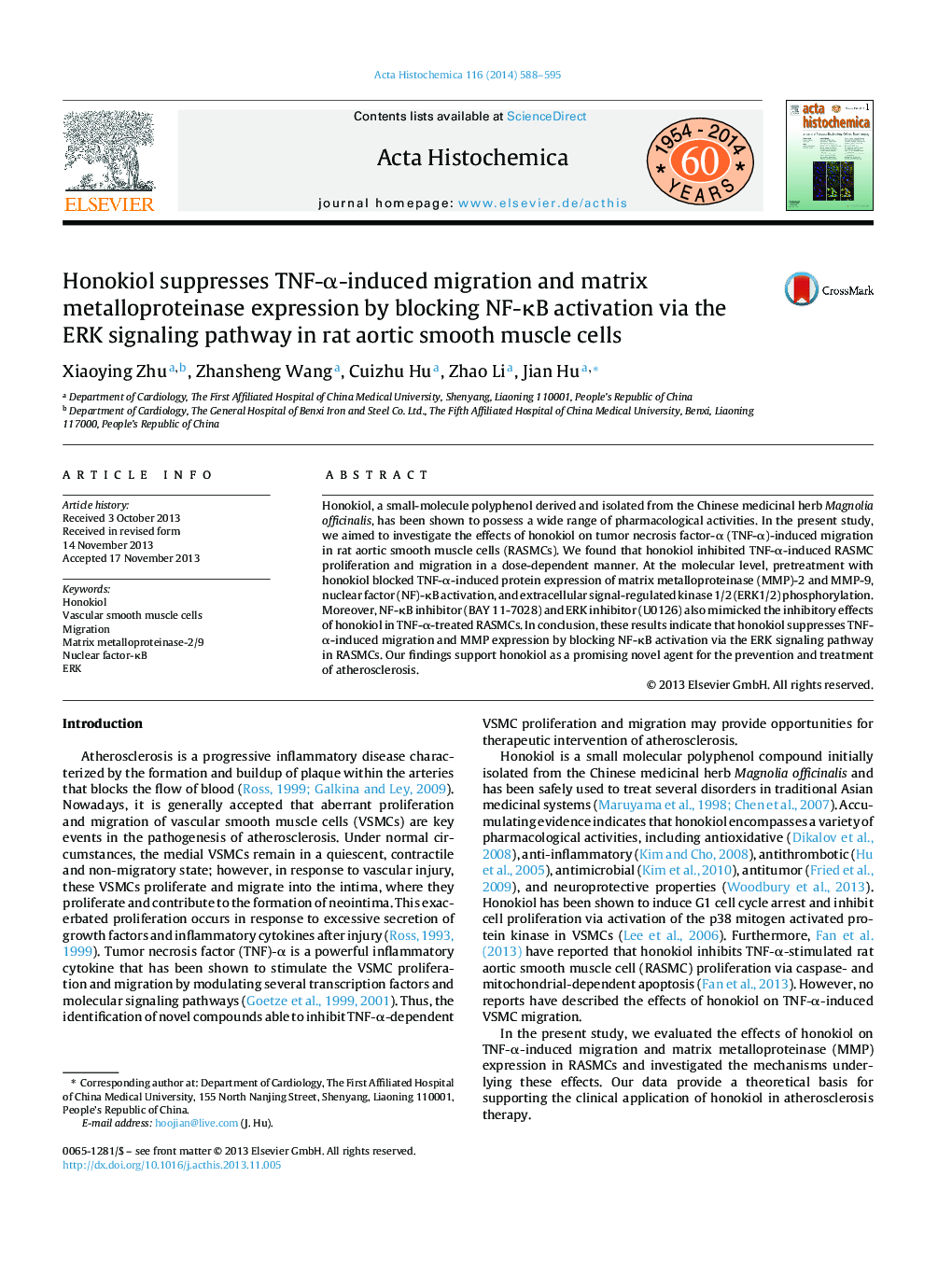| Article ID | Journal | Published Year | Pages | File Type |
|---|---|---|---|---|
| 1923627 | Acta Histochemica | 2014 | 8 Pages |
Honokiol, a small-molecule polyphenol derived and isolated from the Chinese medicinal herb Magnolia officinalis, has been shown to possess a wide range of pharmacological activities. In the present study, we aimed to investigate the effects of honokiol on tumor necrosis factor-α (TNF-α)-induced migration in rat aortic smooth muscle cells (RASMCs). We found that honokiol inhibited TNF-α-induced RASMC proliferation and migration in a dose-dependent manner. At the molecular level, pretreatment with honokiol blocked TNF-α-induced protein expression of matrix metalloproteinase (MMP)-2 and MMP-9, nuclear factor (NF)-κB activation, and extracellular signal-regulated kinase 1/2 (ERK1/2) phosphorylation. Moreover, NF-κB inhibitor (BAY 11-7028) and ERK inhibitor (U0126) also mimicked the inhibitory effects of honokiol in TNF-α-treated RASMCs. In conclusion, these results indicate that honokiol suppresses TNF-α-induced migration and MMP expression by blocking NF-κB activation via the ERK signaling pathway in RASMCs. Our findings support honokiol as a promising novel agent for the prevention and treatment of atherosclerosis.
